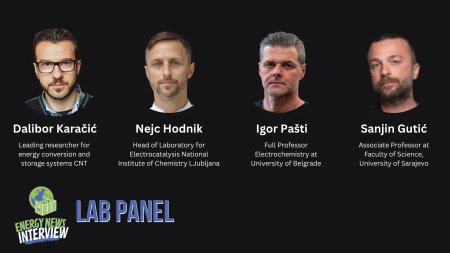Many of the national decarbonization paths now being debated at the United Nations’ 26th Conference of the Parties on Climate Change, known as COP26, in Glasgow, include hydrogen deployment.
This is due to hydrogen’s capacity to aid emissions reductions in industrial applications, heavy transportation, and other difficult-to-abate sectors, particularly the green version created from renewables.
It might also open up new potential for international energy alliances by allowing cross-border commerce in renewable-generated electricity.
Nowhere in the world has more hydrogen potential than the Indo-Pacific, according to a paper released by the Perth USAsia Centre by former International Energy Agency chief Nobuo Tanaka.
Some of the world’s most energy-hungry, emissions-intensive, and renewables-constrained economies are found in the region. For the clean energy transition, it will reconfigure its patterns of regional energy dependency established during the petroleum era.
The economic connection between Australia and Japan is a good example. The connection, which was built on iron ore and coal in the 1960s and liquefied natural gas in the 1980s, was essential in Japan’s reemergence as a major global economy and Australia’s integration into Asia.
Cooperation in technology and infrastructure between Australia and Japan also aided the establishment of regional markets for the same goods, which later benefited additional players such as South Korea, Taiwan, and China.
These economic linkages, in turn, fueled the creation of regional frameworks, such as the Asia-Pacific Economic Cooperation, which have helped to keep peace and prosperity in the area for decades.
Today, Japan and Australia have resurfaced as important proponents of a new type of regional energy integration, this time based on hydrogen.
The Japanese government has laid forth ambitious ambitions to build a hydrogen society, with the goal of becoming a major importer and regional market maker. It has committed to building worldwide value chains that span hydrogen production, storage, transportation, and usage in order to achieve this.
Japan is also a pioneer in hydrogen diplomacy, having organized the inaugural Hydrogen Energy Ministerial Meeting (HEM) in 2018 and promoting hydrogen development during its Group of 20 chairmanship in 2019.
Meanwhile, Australia plans to become a hydrogen export giant. Industry and national and provincial governments in Australia are putting strategies in place to take use of the country’s abundant renewable energy resources and adapt the country’s existing fossil fuel-based trade and investment partnerships to a new era. The Western Green Energy Hub, for example, will use 50 gigawatts of wind and solar electricity to manufacture hydrogen and ammonia for export to Japan and other Asian markets.
Through official intergovernmental agreements, Japan and Australia have acknowledged the potential of a bilateral hydrogen collaboration, and commercial ventures between the two are beginning to take shape.
These bilateral activities are part of a larger regional hydrogen drive. H2Korea, a public-private council focused to market growth in South Korea, is pushing the agenda forward. India also wants to be a global centre for green hydrogen production and export.
European nations, such as Germany, are looking for hydrogen in the Indo-Pacific and are assisting with electrolyzers and other technology.
China, the world’s greatest emitter of greenhouse gases, has a similar enormous potential for decarbonization with expanded hydrogen integration. It has yet to adopt a national hydrogen policy, but it may expect national and worldwide impact in areas including as consumption, production, technology, and infrastructure.
In this new arena, competition for economic prospects will be severe. However, the most significant advantage of a hydrogen transition will be improved climatic stability and reduced dangers of resource rivalry, population displacement, and insecurity.
Hydrogen will also help to ensure regional energy security and geopolitical stability by broadening the global energy mix and the number of national providers. Many of the rising hydrogen producers, like Australia, provide a more stable and market-based energy partner than the hydrocarbon-dominant countries.
However, establishing a hydrogen market capable of delivering up to 25% of global energy usage by 2050 will need significant legislative assistance.
According to the International Energy Agency, getting hydrogen on track to assist reach net zero emissions by 2050 by 2030 would take over $1 trillion in public and private investment. Green hydrogen production prices, in particular, must plummet if it is to compete with conventional fossil fuel energy sources.
The benefits of reducing climate change, economic development, and regional integration, on the other hand, are just too great not to seek market creation. Close collaboration between governments in the Indo-Pacific region will be critical to the industry’s growth.
Japan and Australia are in the greatest position to lead this process thanks to their extremely ambitious and complementary hydrogen ambitions. Both should maintain strong support for domestic hydrogen interests while facilitating new bilateral trade and investment ties.
They should also cooperate to form a larger hydrogen alliance, especially through multilateral forums like the HEM. This might make it easier to establish regional business-to-business ties as well as new legislation, standards, and certification systems.
Such approaches may yield both strategic and economic benefits in the long run. One obvious example is the golden chance for like-minded nations to work together to help developing countries in South and Southeast Asia and the Pacific get the infrastructure and other assets they will need to participate in the new hydrogen economy.








